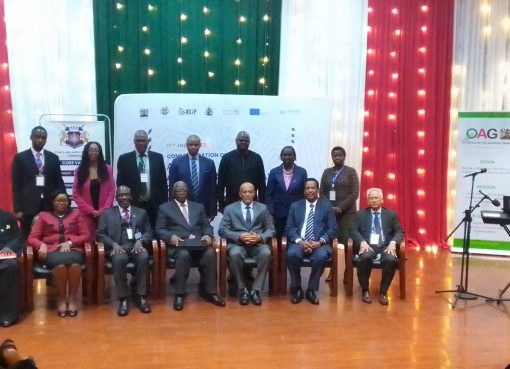The Intergovernmental Relations Technical Committee (IGRTC) convened a meeting in Nairobi to deliberate on the issues of revenue sharing and the rampant incidences of human-wildlife conflict.
The Nairobi meeting that brought together Taita Taveta County representatives and officials from the Ministry of Tourism, Wildlife, & Heritage follows another consultative one chaired by the IGRTC at Mwatate on intergovernmental disputes between the county government of Taita Taveta and Kenya wildlife services (KWS) towards the end of last year.
Opening the meeting held at the IGRTC headquarters in Nairobi, Vice Chair IGRTC and also the chair of the thematic area sub-committee on Alternative Dispute Resolution (ADR), Ms. Saadia Kontoma, urged all parties to be open to reach amicable solutions for the benefit of both humans and beasts.
“I urge you to show good faith in the deliberations we’re going to have and embrace amicable solutions for the benefit of both our people and our wildlife,” said Ms. Kontoma.
She added that the national government is actively strengthening cooperation and seamless relations between the two tiers of governance, a trend that should be emulated by every other governmental entity for better service delivery to Kenyans.
“We can all borrow a leaf from the example set by the national government in establishing a workable mechanism of cooperation and partnerships between the state and devolved units to ensure delivery of service to the citizens,” said Ms. Kontoma.
Mr. Stephen Cheruiyot from the state department of Tourism and Wildlife who led the ministry’s team expressed his side’s commitment to resolve the issues in the shortest time possible.
“We’re committed to the successful resolution of the issues on the table and our stand is to find a win-win formula for both sides in the shortest time possible,” said Cheruiyot.
Equally warming up to the IGRTC-led mediation, Taita Taveta County Deputy Governor, Christine Saru Kilalo, said the entire county leadership was hoping for a quick and long-lasting solution to the areas of concern and promised continued commitment to the mediation process.
“Our stand is to solve the issues at hand as soon as possible through the mediation channel and for the best outcome for our people,” stressed Kilalo.
The thorny issues that have put the county and KWS at loggerheads revolve around revenue sharing from Tsavo National park, employment of locals within KWS, and compensation for destruction and damages caused by Human/Animal conflicts.
On their part, the county laments that despite over 62 percent of their arable land mass being taken up by both Tsavo East and Tsavo West landscapes; the devolved unit does not draw a penny in revenue from the activities at the parks.
KWS has and continues to hold the opinion that the matters can only be brought to a close through mediation that would lead to a memorandum of understanding and a structured plan of engagement by both sides.
In a move to address the perennial issue of human-wildlife conflicts that often leave communities counting losses of lives and properties, the state through KWS in October last year released Sh206 million to compensate hundreds of residents in Taita-Taveta County for human and livestock deaths and destruction of crops and property by wild animals from the Tsavo Ecosystem.
By Arnold Linga Masila



